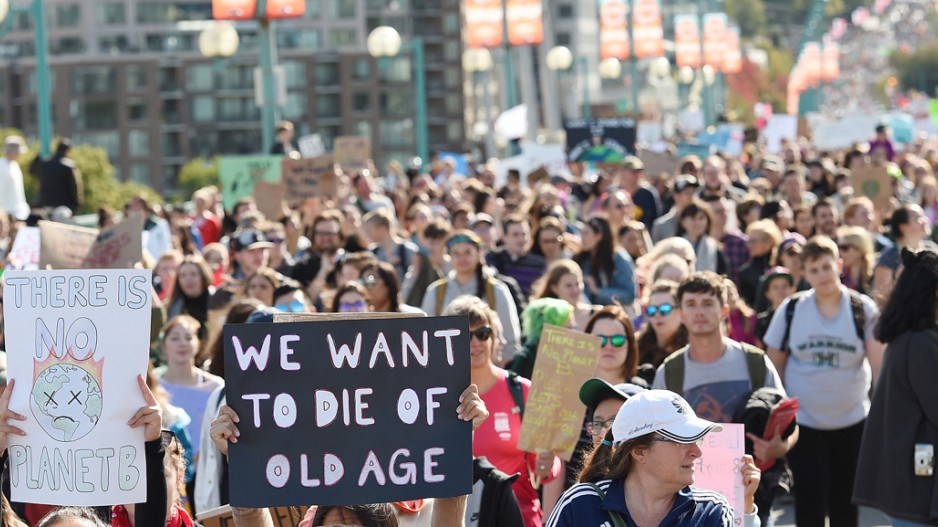As they paid homage to the thousands of people gathering in Vancouver’s streets for the Sept. 27 climate strike in Vancouver, Union of B.C. Municipalities delegates passed multiple climate-protection resolutions Sept. 26, issues Victoria Mayor Lisa Helps described as ‘non-partisan.’
Indeed, Premier John Horgan, in his closing address paid tribute to those marching in the streets – many of them youthful.
“I am delighted to see so many young people coming together to make their voices heard,” Horgan said. ”I encourage them to continue to say to adults that the world is in their hands today and we need to do a better job.”
Victoria Coun. Ben Isitt was more blunt. "Our current economy is dying,” he said. “I think that’s apparent to anyone who opens their eyes.”
The resolutions covered a range of issues such as transition to a low-carbon economy, recovery of municipal costs, fossil fuel company subsidies, increasing the province’s response to climate change, greenhouse-gas reductions, electric vehicle charging, low-emission transportation, single-use containers and microplastics.
The annual gathering supported a call to urge local, regional, provincial and federal governments to recognize a climate emergency accelerate efforts to fight it.
Another resolution called on all levels of government to take steps toward the protection of biodiversity and to support actions to reduce greenhouse gas emissions.
A similar resolution also passed calling on all governments to make available vehicle information, to develop and implement low-carbon fuel standards, invest in zero-emissions vehicle sales targets and to continue programs for low-carbon initiatives including low-carbon emissions for building retrofits, transportation, waste management and other priority areas.
The conference passed a Victoria resolution calling for a shift to lower-emitting transportation options.
On the electric vehicle front, delegates agreed B.C. should have right-to-charge rules in multi-family dwellings. The resolution said many British Columbians do not currently have the right to charge vehicles in the buildings’ parking stalls.
Delegates did, though, reject a climate accountability resolution put forward by Port Moody. That proposal called for the province to enact legislation to hold fossil fuel companies “for climate-related harms caused by their contributions to climate change.”
Delegates also rejected a resolution calling on the province to end all subsidies to fossil fuel companies. It noted Victoria has approved $5.35 billion in tax incentives for the $40-billion LNG Canada liquefied natural gas storage and loading terminal in Kitimat.
Single-use beverage containers were targeted in an Oak Bay resolution calling for all containers to be added to the deposit refund system.
Another resolution called for the implementation of an environmental fee for all single-use products to incentivize their reduction, with proceeds going to solid waste management programs and to contribute to B.C.’s Provincial Zero Waste Strategy.
A supported West Vancouver resolution recommended that local governments be given the power to regulate or restrict single-use items.
[email protected]
@jhainswo




